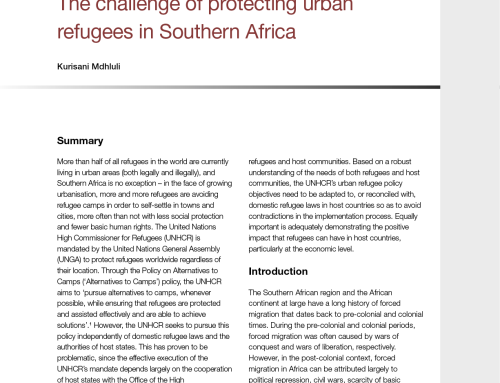
IJR Policy Brief 33
In February 2019, the African Union (AU) Assembly of Heads of State and Government formally adopted the African Union Transitional Justice Policy (AUTJP) which outlines a broad range of processes for addressing the legacies of past violations and mechanisms for building inclusive societies. The AU’s adoption of this policy is a unique innovation, as it is the first time in its history that the African continent has enumerated and institutionalised its own approach to addressing the past as a necessary pathway to building more inclusive and stable societies in the future. However, despite the AUTJP’s adoption, this policy brief will discuss how both governmental and societal actors in AU member states have not fully engaged and implemented the policy at the national level. Similarly, regional economic communities (RECs) have not sufficiently engaged with the AUTJP and developed their own regional strategies to advise and guide their member states. This can contribute towards stabilising their countries and forging more inclusive and democratic societies. The policy brief will also discuss the importance of the creation of a continental network of transitional justice practitioners and analysts who can provide technical support and guidance to all 55 African countries. All of the continent’s countries require some form of transitional justice intervention, if they have not already implemented a national process of addressing the past as a means of sustaining peace in the future.
By: Tim Murithi
Pages: 8
Dimensions: A4
Date of publication: 2021




